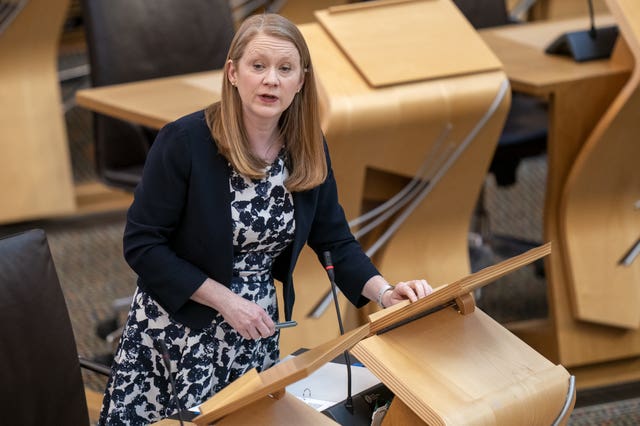Half a million people are in “very deep poverty” in Scotland with statistics showing women and ethnic minorities are disproportionately at risk, according to the Joseph Rowntree Foundation (JRF).
The charity considered “relative poverty”, “very deep poverty”, and “in-work poverty”, and found housing costs were particularly detrimental to working families.
More than a million people, including approximately 250,000 children, are living in relative poverty, while a 10th of the Scottish population – nearly half a million – are living in “very deep poverty”, according to a new JRF State of the Nation report.
Statistics showed 60% of children living in poverty have at last one parent who works, and a tenth of workers were paid below the Real Living Wage for at least four in five years.
People from a minority ethnic background experience a rate of in-work poverty more than triple the rate for white workers, while 70% of those “trapped in persistent low pay” were women, and another 70% were single.
Almost three-quarters of families impacted by “in-work poverty” have at least one person working in retail, hospitality, health and social work, administrative and support services, and/or manufacturing.
Housing costs had a huge impact, with 110,000 people in working families “pulled into poverty due to their housing costs”, meaning their income was “enough to escape poverty” but outgoings were excessive.
The charity predicted that the Sottish Child Payment would help to decrease child poverty but warned the UK Government was in denial over the cost-of-living crisis and that a “work first” approach had failed to reduce poverty along with changes to Universal Credit.
It warned that “without significant longer term actions planned by the Scottish Government, it is difficult to see how the 2030/31 targets can be met under current plans”.
First Minister Humza Yousaf has pledged to call on the UK Government to legislate for an Essentials Guarantee to ensure Universal Credit should protect people from going without the essentials.
JRF associate director for Scotland Chris Birt said: “The Scottish Government can still meet its child poverty reduction targets but it needs to get a move on. While the Scottish Child Payment is providing crucial support to families and starting to drive poverty down again, it isn’t enough.
“A major reason for that is the failure of work to be a reliable route out of poverty, particularly for women. Some of our biggest industries are trapping people in low pay, unreliable hours and underemployment.
“There are things governments can, and should do, but businesses need to engage with their workforces to ensure that employees are able to secure an income that supports them to get by.

“At the same time decision-makers are sleepwalking towards another winter that promises to be crushing for households across Scotland.
“The Scottish Government will need to react to this in their forthcoming budget but the UK Government in particular seems to believe that the cost-of-living crisis is over. They are wrong.
“We want to see the UK Government come through for the Scottish people by embracing the Essentials Guarantee which would improve the lives of people across these islands.”
A UK Government spokesperson said: “The Government’s priorities are clear – the best way to help people in Scotland and across the United Kingdom with the cost of living is by driving down inflation and growing our economy.
“We have also provided unprecedented support, recognising the challenges families are facing with the cost of living, providing an average of £3,300 per household while also increasing benefits in line with inflation and lifting the living wage by record levels.”
Social Justice Secretary Shirley-Anne Somerville said: “Tackling poverty and protecting people from harm is one of three critical missions for the Government.
“We know poverty doesn’t affect everyone equally and that is why we continue to have a particular focus on supporting women, disabled people, racialised minorities, and children from our six priority family groups.
“This year we are investing around £3 billion in policies aimed at tackling poverty and protecting people as far as possible during the ongoing cost-of-living crisis.
“This includes ongoing investment in our Scottish Child Payment, with 316,000 children benefiting from unique support worth £25 per week as of June 30, and making £83.7 million through Discretionary Housing Payments to mitigate the impact of UK Government welfare cuts.
“Our 2023 Programme for Government sets out how we will drive progress in tackling poverty and addressing unfairness in Scotland’s labour market, including by increasing the wages of 100,000 social care and childcare staff to £12 per hour from April 2024.
“We’ll continue to work with local government and the third sector in the delivery of employability services, and we’ll also engage with business to highlight the importance of fair work in tackling the cost-of-living crisis, in-work poverty and child poverty.”
